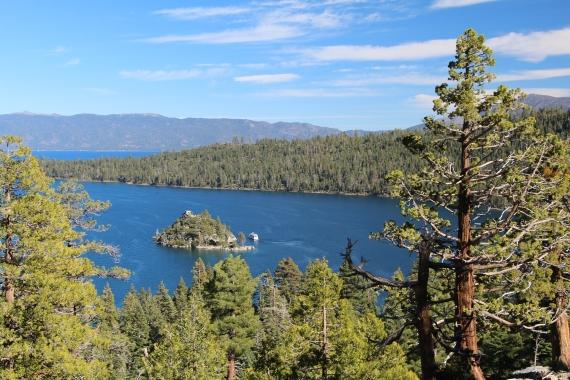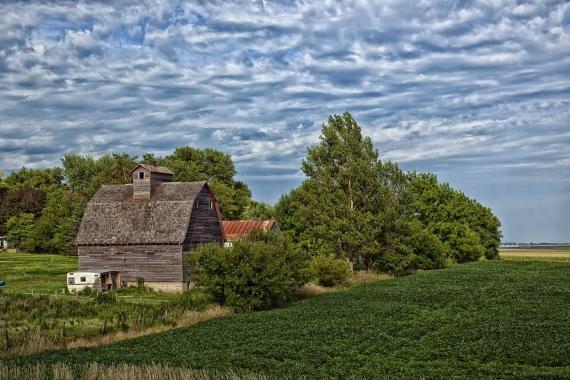How and Where to Find Plots of Land Near Rivers
Posted: July 10, 2016 by LandCentury

Land near rivers is desirable. Any waterfront property will hold immense value, and these properties are often difficult to find. There are a lot considerations that need to be made when looking for land near a river. Before we talk about how you can refine your search to look for plots of land near a river, lets first discuss some of the cautionary measures that must be taken.
Waterfront Land Concerns
Waterfront land is some of the most desirable in the entire world, but there are some concerns when living on waterfront property. Lets discuss some of these concerns so that you know what youre getting yourself into prior to buying a lot:
Rivers Flood
Perhaps the biggest concern is that rivers often flood. If your home is near any body of water, there is a concern that it can flood. You need to know the area well, and if you will be living in a flood zone. Even if you dont choose to build a home on the property, flooding can result in loss of crops or hinder other uses of the land. There is also a chance that the land may be in an area that is prone to sinkholes, which is highly undesirable. Always weigh these decisions so that you know if your investment is one that is well-thought-out and planned.
Insurance
Insurance will be needed if you purchase property with a home, or purchase a property and build a home on it. Many insurers make it difficult to insure property if it is prone to flooding. You may be able to purchase insurance that will cover flooding, but you may also be denied coverage because an area is far too prone to flooding.
River Condition
The condition of the river itself should be one of your biggest concerns. Obviously, a polluted river comes with its own risks. If the river is highly polluted and this is visible from the property, it will greatly hurt the resale value of the land.
If the river has been polluted with chemicals or toxic substances, you may want to think twice about purchasing the property.
River Erosion and Deposition
Erosion is a major problem with any property that is waterfront. The main issue is that erosion will eventually eat away at your total land size, and limits the possibility of building a structure near the water. Many homes have been evacuated and were completely destroyed because of erosion that led to the home becoming unsafe to live in. In severe cases, the land will become so eroded that the home actually falls into the water.
Deposition, on the other hand, is when minerals and substances are deposited on the land, which occurs due to a river losing energy. Energy causes the river to flow strongly, and one of the main reasons that a river would lose energy would be lack of rainfall. Rocks or minerals will not be able to be transported by the river naturally because of the lack of energy and may wind up on the land that you own.
Finding Land Near Rivers
While the risks listed above are scary, there are still millions of plots of land located near rivers and bodies of water. The best part is that most of these properties are not at risk of erosion or flooding. Finding waterfront land is a rather simple process. All you have to do is look for waterfront properties. A good way to narrow your search is to use filters. You want to look for the following keywords:
* Waterfront
* River
* Lake
* Creek
Obviously, the best keyword to use is river, because waterfront can mean anything from ocean water, to lakes or creeks. Trying to find the perfect location has become a lot easier thanks to Google Maps. With Google Maps, youre able to begin your search in a whole new way. What I like to do is to find a roundabout location where I would like to buy a piece of property.
Lets walk through this process together to see how it works.
* Go to Google Maps.
* Type in Houston, Texas.
* Zoom into the city.
When you zoom in, youll the able to see the names of any major bodies of water. We found the following:
* Buffalo Bayou
* Bays Bayou
* Sims Bayou
* Marys Creek
These results were very quick to find. Youll find dozens of bodies of water indicated by the blue markings on the screen. Yes, some of these are bayous, which aren't exactly rivers, but it does allow you to find areas where you can find properties to purchase.
I would use these as keywords to conduct my search, or find general locations in which you would like to purchase a property. You can even use Street View to view land and see what's around your prospective property.
Another neat trick that I like to use is to use Wikipedia. A great example of this is using Texas again. I searched for the following: lists of rivers in Texas, and I was presented with the following link. Numerous rivers have been presented to me in this list, and I could use these locations when trying to find the perfect property for my needs.
You can simply search Wikipedia for your respective state and place the phrase list of rivers in before the name of your state. While I can't guarantee that all rivers will be listed, all of the major rivers are normally listed, and listings are often updated with relevant information. Its a great way to start your search, and something that I recommend to anyone who is adamant on finding land on a river.
You can also use this list of all of the rivers in the entire country: https://en.wikipedia.org/wiki/List_of_rivers_of_the_United_States.
Its definitely a tedious process, but it does help you find a general location to further conduct your research. It takes time and patience to find the perfect plot of land near a river. Dont be discouraged during your search because there are a lot of rivers all throughout the United States with prime land available.
Waterfront Land Concerns
Waterfront land is some of the most desirable in the entire world, but there are some concerns when living on waterfront property. Lets discuss some of these concerns so that you know what youre getting yourself into prior to buying a lot:
Rivers Flood
Perhaps the biggest concern is that rivers often flood. If your home is near any body of water, there is a concern that it can flood. You need to know the area well, and if you will be living in a flood zone. Even if you dont choose to build a home on the property, flooding can result in loss of crops or hinder other uses of the land. There is also a chance that the land may be in an area that is prone to sinkholes, which is highly undesirable. Always weigh these decisions so that you know if your investment is one that is well-thought-out and planned.
Insurance
Insurance will be needed if you purchase property with a home, or purchase a property and build a home on it. Many insurers make it difficult to insure property if it is prone to flooding. You may be able to purchase insurance that will cover flooding, but you may also be denied coverage because an area is far too prone to flooding.
River Condition
The condition of the river itself should be one of your biggest concerns. Obviously, a polluted river comes with its own risks. If the river is highly polluted and this is visible from the property, it will greatly hurt the resale value of the land.
If the river has been polluted with chemicals or toxic substances, you may want to think twice about purchasing the property.
River Erosion and Deposition
Erosion is a major problem with any property that is waterfront. The main issue is that erosion will eventually eat away at your total land size, and limits the possibility of building a structure near the water. Many homes have been evacuated and were completely destroyed because of erosion that led to the home becoming unsafe to live in. In severe cases, the land will become so eroded that the home actually falls into the water.
Deposition, on the other hand, is when minerals and substances are deposited on the land, which occurs due to a river losing energy. Energy causes the river to flow strongly, and one of the main reasons that a river would lose energy would be lack of rainfall. Rocks or minerals will not be able to be transported by the river naturally because of the lack of energy and may wind up on the land that you own.
Finding Land Near Rivers
While the risks listed above are scary, there are still millions of plots of land located near rivers and bodies of water. The best part is that most of these properties are not at risk of erosion or flooding. Finding waterfront land is a rather simple process. All you have to do is look for waterfront properties. A good way to narrow your search is to use filters. You want to look for the following keywords:
* Waterfront
* River
* Lake
* Creek
Obviously, the best keyword to use is river, because waterfront can mean anything from ocean water, to lakes or creeks. Trying to find the perfect location has become a lot easier thanks to Google Maps. With Google Maps, youre able to begin your search in a whole new way. What I like to do is to find a roundabout location where I would like to buy a piece of property.
Lets walk through this process together to see how it works.
* Go to Google Maps.
* Type in Houston, Texas.
* Zoom into the city.
When you zoom in, youll the able to see the names of any major bodies of water. We found the following:
* Buffalo Bayou
* Bays Bayou
* Sims Bayou
* Marys Creek
These results were very quick to find. Youll find dozens of bodies of water indicated by the blue markings on the screen. Yes, some of these are bayous, which aren't exactly rivers, but it does allow you to find areas where you can find properties to purchase.
I would use these as keywords to conduct my search, or find general locations in which you would like to purchase a property. You can even use Street View to view land and see what's around your prospective property.
Another neat trick that I like to use is to use Wikipedia. A great example of this is using Texas again. I searched for the following: lists of rivers in Texas, and I was presented with the following link. Numerous rivers have been presented to me in this list, and I could use these locations when trying to find the perfect property for my needs.
You can simply search Wikipedia for your respective state and place the phrase list of rivers in before the name of your state. While I can't guarantee that all rivers will be listed, all of the major rivers are normally listed, and listings are often updated with relevant information. Its a great way to start your search, and something that I recommend to anyone who is adamant on finding land on a river.
You can also use this list of all of the rivers in the entire country: https://en.wikipedia.org/wiki/List_of_rivers_of_the_United_States.
Its definitely a tedious process, but it does help you find a general location to further conduct your research. It takes time and patience to find the perfect plot of land near a river. Dont be discouraged during your search because there are a lot of rivers all throughout the United States with prime land available.




